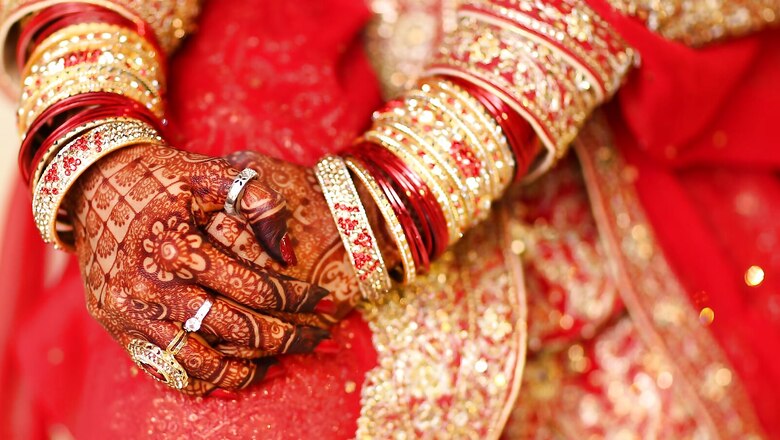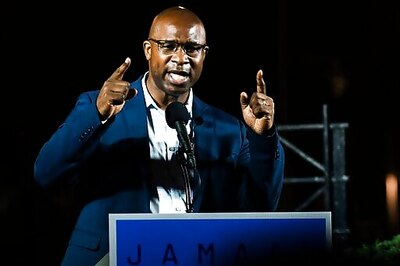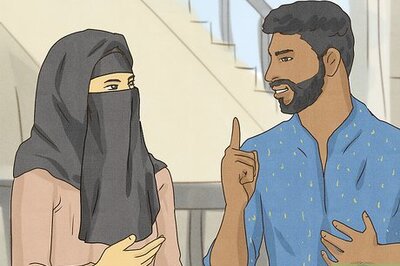
views
The Modi government has stoked yet another controversy by introducing the Prohibition of Child Marriage (Amendment) Bill, which seeks to raise the marriageable age of women to 21 years, making it uniform for both women and men. However, the bill has been referred to a standing committee, after an uproar from several Opposition leaders.
Several political analysts see the move in the light of the coming Uttar Pradesh elections. Since various Opposition parties, Muslim officials, and Muslim clerics have declared resistance to the notion, they say, the BJP in Uttar Pradesh will be able to garner support among women, particularly Muslim females.
The bill has been vociferously criticised by several Muslim leaders of the Samajwadi Party, a few of them are also members of Parliament. One of them even claimed that this would lead to Muslim girls indulging in unlawful relationships and activities such as viewing pornography, among other things.
The president of the All India Majlis-e-Ittehadul Muslimeen, Asaduddin Owaisi, said with a hint of sarcasm: “She (women) can elect a PM but can’t have the choice to choose her husband.” Owaisi here didn’t tell whether women in Islam have a choice to choose her groom.
However, the fundamental question of why this legislation has been proposed in the first place remains unaddressed. Is it possible that the Opposition is missing the fundamental point? Joining the vote-bank politics bandwagon is a foolish and misguided idea. Is the BJP proposing a semi-Uniform Civil Code? Consider the implications of the proposed change.
All faiths in India require a bride to be at least 18 years old, with the exception of Muslims. A Muslim girl can marry as soon as she reaches puberty, which happens between the ages of 12 and 14, according to the Muslim personal law, which is a codification of Shariah. Whereas girls of other religion must wait until they reach the age of 18, this doesn’t apply to Muslim girls. A girl married at a very young age does not comprehend how to use contraception to avoid conception; by the age of 20, she is already the mother of a couple of children, if not more. In order to marry, she must also drop out of school. By raising the age limit to 21, they will be able to attend schools and colleges, with better understanding of what she wants to do in life.
As per BJP think tanks and Hindu community leaders, the bill also aims at curbing the menace of “Love Jihad”. They believe that at 18 a girl is too young to comprehend the nuances of marrying a boy of another faith. At 21, she is more likely to understand society and her place in the larger scheme of things, thanks to more exposure to education and the world at large.
Several Muslim personal laws, most notably the Triple Talaq, have been deemed unlawful on several occasions by the Supreme Court and High Courts of the country. Unfortunately, political parties in India, as well as religious organisations, are constantly opposed to progressive efforts to help women. They believe that adhering to the proposed amendment will be a violation of Article 25 regarding religious freedom. But, then, how can the law make a distinction between a Hindu and a Muslim girl in a democratic, secular country?
The National Family Health Survey has issued a paper stating unequivocally that lack of information, early maternity (early marriage), malnutrition, and mortality rate are the primary reasons of underdeveloped, weak children, and infant death. If any specific communal or religious biases are opposed to it and stand in its way, then the rule of law is the only remedy.
Every fifth girl in India marries before the age of 18, a figure that was 50 percent until 2005 and has dropped to 27 percent by 2016. Awakening is essential, whether via education or fear of the law. According to a 1931 study, more than 3.2 million women died during pregnancy or at the time of delivery owing to child marriage, which was higher than the entire number of deaths during World War I, because their bodies could not take the labour due to their young age.
At the time, infant mortality was high, and one out of every three infants was born with physical or mental disability. People were afraid to have a girl child at the time since they were still living in the aftermath of the Islamic invasion. It has taken a long time for the Hindu society to grasp the disadvantages of child marriage, but Hindus’ progressive character, self-cleansing, and self-actualisation have allowed them to emerge out of such situations. But this has not been the case in Islam whose followers strictly adhere to the Quran and Islamic laws.
The legislation comes at a time when India is scaling new heights and Indian women are breaking glass ceilings. In a democracy, we cannot afford to have two sets of norms. Muslim clerics must come out in support of this initiative; they must understand that in the 21st century, we can’t pretend to live in a seventh-century culture. The bill should not be opposed just for the sake of opposition.
The writer is Research Scholar, NIT Surat. Views expressed are personal.
Read all the Latest Opinions here




















Comments
0 comment